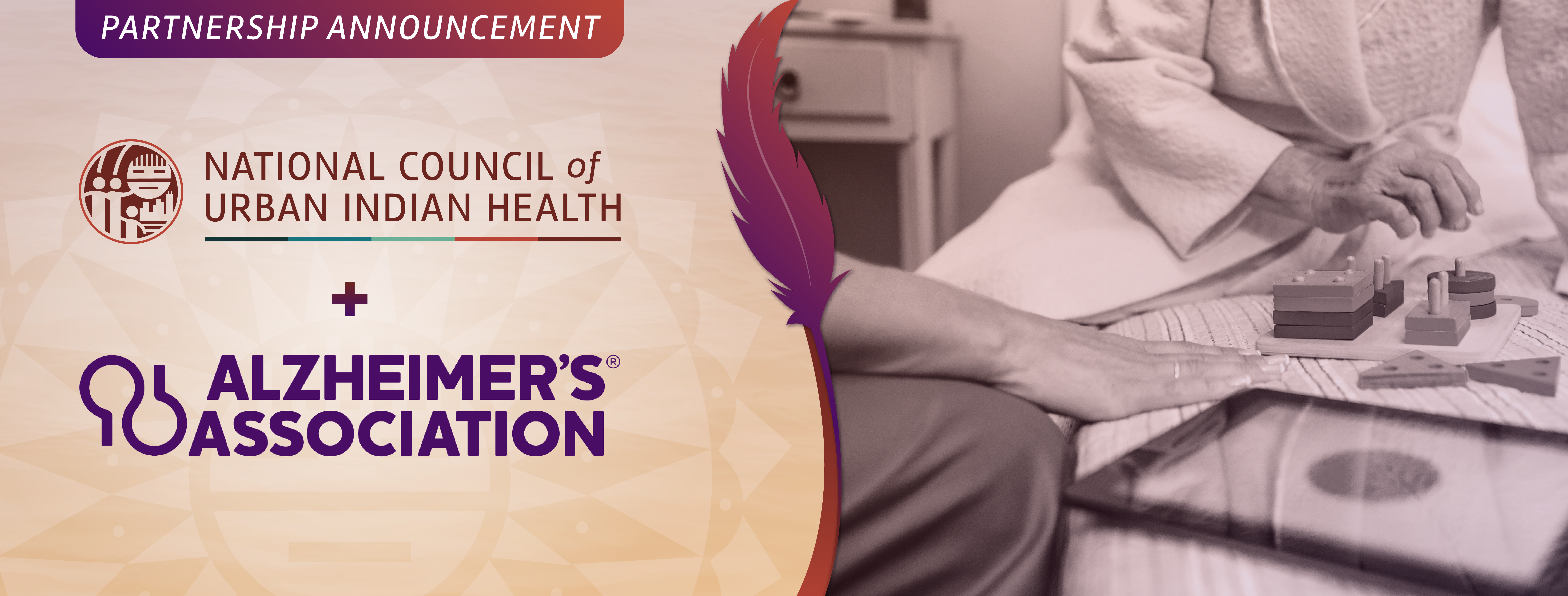PRESS RELEASE: NCUIH Applauds the Invitation of Native Health Leaders at Joint Session of Congress
FOR IMMEDIATE RELEASE
WASHINGTON, D.C. (March 4, 2025) – The National Council of Urban Indian Health (NCUIH) proudly recognizes the invitation of two esteemed Native health leaders to attend the upcoming Joint Session of Congress in Washington, D.C. Dr. Linda Son-Stone, CEO of First Nations Community HealthSource, has been invited as a guest of Congresswoman Melanie Stansbury (NM-01), while Walter Murillo, CEO of Native Health Phoenix and NCUIH Board President, will attend as a guest of Congressman Greg Stanton (AZ-04). Both Stansbury and Stanton are members of the Native American Caucus. The Joint Session of Congress presents an opportunity to emphasize the importance of honoring the federal trust responsibility to provide adequate healthcare to Native people.Both leaders have dedicated their careers to advocating for the health and well-being of urban Native populations. Their invitations are a recognition of the key role of Urban Indian Organizations (UIOs) in providing healthcare to Native communities.
UIOs are nonprofit organizations funded by the Indian Health Service (IHS) to provide quality health care to Native Americans living in urban areas. Native Health, based in Phoenix, Arizona, delivers primary medical, behavioral health, and community wellness services to the urban Native population. First Nations Community HealthSource (FNCH), located in Albuquerque, New Mexico, is the state’s only Urban Indian Organization and serves as a critical healthcare provider for Native and other underserved communities.

Stanton Emphasizes Importance of Native Health in Serving People on Medicaid
Congressman Stanton emphasized the importance of Murillo’s attendance in light of proposed Medicaid cuts that would disproportionately impact Native communities.
“Walter and the team at Native Health work every day to provide quality, affordable health care to Arizona’s urban Native population, and as many as half of their patients rely on AHCCCS (Arizona Health Care Cost Containment System). I’m proud that Walter will be my guest at the President’s address to highlight why Congress should reject any budget that cuts Medicaid and takes away health care for Arizona families,” said Rep. Stanton.
Medicaid is the biggest source of funding for Urban Indian Organizations outside of the Indian Health Service (IHS). 37.4% of Native Arizonans are enrolled in Medicaid—including more than 53,000 Native Medicaid beneficiaries in Arizona’s Fourth Congressional District.

First Nations Community HealthSource: A Shining Light
Similarly, Congresswoman Stansbury highlighted the innovative work of First Nations Community HealthSource as “the shining light of health care in New Mexico.” Stansbury, stated, “this clinic is a cornerstone of our community, providing holistic and wrap-around services that address the deep health disparities facing our Native populations. I am honored to have Dr. Linda Son-Stone, an extraordinary leader in urban Indian health, as my guest at the Joint Session of Congress” said Rep. Stansbury.
On February 27, Rep. Stansbury led 111 members of Congress in a letter urging the administration to reverse executive actions that are negatively impacting Tribal programs. Their support is particularly critical as proposed Medicaid cuts threaten the health care coverage of the 2.7 million Native Americans who rely on Medicaid.
The joint session airs tonight, March 4 at 9:00 pm ET, live on C-SPAN.
About NCUIH
The National Council of Urban Indian Health (NCUIH) is a national representative for the 41 Urban Indian Organizations contracting with the Indian Health Service under the Indian Health Care Improvement Act. NCUIH is devoted to the support and development of high quality and accessible health and public health services for American Indian and Alaska Native people living in urban areas.
NCUIH respects and supports Tribal sovereignty and the unique government-to-government relationship between our Tribal Nations and the United States. NCUIH works to support those federal laws, policies, and procedures that respect and uplift Tribal sovereignty and the government-to-government relationship. NCUIH does not support any federal law, policy, or procedure that infringes upon or in any way diminishes Tribal sovereignty or the government-to-government relationship.
###
NCUIH Contact: Meredith Raimondi, Vice President of Policy and Communications, mraimondi@ncuih.org






